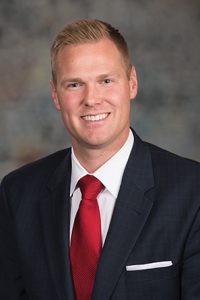Committee advances bill to speed up Social Security income tax phaseout
The Revenue Committee heard testimony Jan. 19 on a proposal to speed up the eventual elimination of state taxation of Social Security income and voted to advance the bill to the first round of debate.

Lawmakers passed a measure in 2021, sponsored by Omaha Sen. Brett Lindstrom, which set the exemption on such income, to the extent that it is included in federal adjusted gross income, at 20 percent in tax year 2022. The exemption then is scheduled to increase 10 percent per year until reaching 50 percent in tax year 2025, with the stated intention of eliminating the tax entirely in 2030.
Lindstrom introduced LB825 this session to accelerate that schedule to a 20 percent annual increase, resulting in a 100 percent exemption in tax year 2025. Lindstrom said he has been working to eliminate state taxation of Social Security income since he came to the Legislature eight years ago.
“We have to restructure our fundamental tax code to be competitive,” he said. “We should not be taxing this; we never should have been.”
The state Department of Revenue estimates that the bill would reduce general fund revenue by $59.6 million when fully implemented in fiscal year 2024-25, $70 million in FY2025-26 and $73.8 million in FY2026-27.
Deloris Tonack, current president of NSEA-Retired, testified in support of the proposal. Social Security was established as a program to assist people, she said, and was not meant to become a source of revenue for state governments.
“This is a fair way to eliminate an unfair tax on retirement benefits,” Tonack said.
Also testifying in support was Dave Holmquist, who spoke on behalf of AARP Nebraska. Currently, he said, Nebraska is one of only 12 states that tax Social Security income.
Retirees feel the impact of inflation more than other individuals, Holmquist said, because most are living on fixed incomes. Eliminating taxation of Social Security income would free up needed funds for older Nebraskans to age in place and pay for prescription medications and other expenses, he said.
Tiffany Friesen Milone, representing OpenSky Policy Institute, opposed LB825. She said the state’s changing demographics would make the bill unsustainable over time, noting that the ratio of retirement age individuals in Nebraska to working age individuals is predicted to double over the coming decades.
“Nebraska’s aging population is outpacing the growth in our workforce,” Friesen Milone said.
The committee voted 7-0 to advance LB825 to general file.

